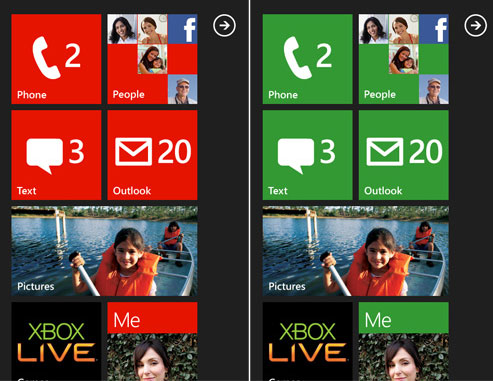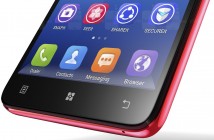
Microsoft’s new mobile operating system has gone through a lot since it was released to the general public almost two years ago. Even though it’s nowhere near as popular as Android or Apple’s iOS, it’s still a pretty great OS, and with Nokia releasing the Lumia 800 and Lumia 900 (the best WP7 phones at the moment, IMO), it looks like things are going to take off soon. There are already enough good apps on the market to satisfy pretty much everyone, and the games look simply amazing.
The only thing the OS needs is better smartphones – single cores and no multitasking just isn’t going to cut it anymore. And Microsoft knows it, that’s why they’ve just announced the new version of the OS – Windows Phone 8, code named “Apollo”.
The new operating system uses the same kernel as the full, desktop version of Windows 8, which is just about to be released as a beta for testing. If you didn’t know, Windows 8 will supersede the current Windows 7 on x86 computers, and will also be available for ARM processors – that’s why the kernel exists in the first place.
Windows Phone 8 brings a lot of improvements, making it a true competitor to Android and iOS. The most important features that will allow phone manufacturers to use the latest and greatest hardware are the support for multiple cores, NFC sensors, multiple screen resolutions (notice how current phones all use the same 800×480 pixels resolution?), full micro SD card support (cards will appear as a separate drive, not integrate into the main storage space), and full on-device encryption (just in time for competing with Android Ice Cream Sandwich).
Those are all pretty important points that will make the OS more attractive to the everyday user, as well as corporations and businesses that need secure devices, which are also compatible with existing technologies and infrastructures. Windows Phone 8 will have much better support for Exchange servers – something that users have been complaining about Windows Phone 7 ever since it was launched.
Thanks to the use of the Windows 8 kernel, which has a long history behind it and is very advanced, Apollo will also be able to do things better and faster than Windows Phone 7. Its support for networking, security and multimedia is supposed to be unrivaled – the OS will be able to find and connect to wireless networks in less than 3 seconds, playback any video file with hardware GPU acceleration, and more.
At the same time, Apollo will be fully compatible with existing Windows Phone 7 apps, although developers will probably want to tweak a few things since the new kernel is slightly different. The full version of Internet Explorer is also present, having the best GPU-accelerated features yet, and a sleek and fast interface with support for Adobe Flash, HTML 5 and most of the new Web technologies. The browser is truly mature and can easily compete with Android’s Chrome or the iPhone’s Safari on equal grounds.
Microsoft also plans to tightly integrate Skype (their newly acquired VoIP service) and SkyDrive (their cloud storage service) with Windows Phone 8, giving users something akin to Apple’s iCloud or even better.
It really looks like 8 will be the most successful number in Microsoft’s history – both the desktop and mobile versions of the OS bring a lot of new features and improvements (more than any previous version!), and they’ll probably be around for around a decade, just like the undying Windows XP. I just hope that the company creates a better marketing strategy, since it seems that people hate their software too much without good reason.



